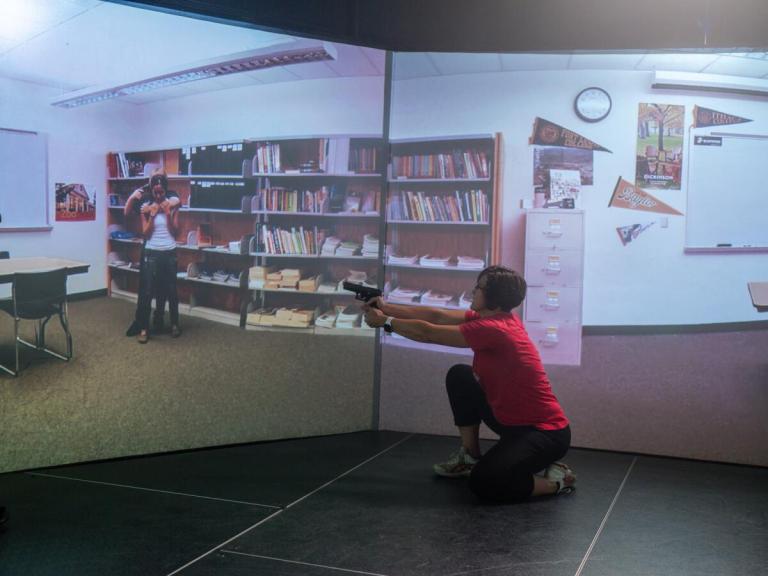
4 Tiny Habits To Become More Self-Aware
It’s the age of technology, the dawn of mindless disconnect from not only human contact but also our own bodies. There’s a reason that drug and alcohol abuse is rampant and so many of us are medicated for mental illness. We’re all just lost sheep, as a society we’ve forgotten how to be one.
Who am I? Who are you? Who are we?
Self-awareness can be defined as “the ability to take an honest look at your life without attachment to it being right or wrong.” It’s knowing who you are, what you feel, and what you desire. You might call it your “gut,” intuition, or sixth sense. Personally, I like to refer to it as my “wise mind.” Self-awareness means paying attention to yourself, not just the messages your body sends, but also what the world around you is saying to you.
Many of us have flipped the switch, pulled the plug, tried to build a wall to prevent the ability to be self-aware. So, how can we get that back? How can we reconnect with ourselves and gain awareness of ourselves?
1. Label Your Emotions.
You may think that you don’t have many emotions throughout a day, but you do… you’ve just become numb to them. So, it’s time to start recognizing emotions when they come to you and give them names. When someone cuts you off on the interstate, instead of honking your horn or raising that middle finger, first say, “I feel angry,” or “I am angry because of what just happened.” You don’t have to fully explore it to start with, just labeling the feelings will allow you to gain awareness of that emotion when it hits you again. If you are feeling really ambitious or are still into the bullet journaling trend, try tracking your emotions each day and reviewing them in the evening.
2. Release Your Thoughts.
One of the largest obstacles to living in the present is clinging to thoughts, especially memories of the past or fears for the future. The only place you can have an impact on your life is the here and now, so it’s time to practice letting go of those thoughts that are preventing you from embracing the moment. A great trick to allow you to realize when you are becoming buried in thought is to label each thought as it enters your mind, then, if it isn’t beneficial to the current moment, send it down the conveyor belt and out of your mind. So, if you are at work and you start wondering what’s for dinner, instead of getting lost in trying to remember what’s in the fridge or what won’t upset your stomach after you eat that burrito for lunch, just say, “future thought,” or “thought about home,” and push it to the side. You’ll find your productivity and mood both positively impacted as you become more aware of your thoughts.
3. Practice Acceptance.
The first line of the Serenity Prayer says, “Grant me the serenity to accept the things I cannot change.” Yet, it is human nature to try to control everything, even that which we cannot control or change. Self-awareness means recognizing the difference between what is within your control and what is outside of the realm of your abilities. Realizing when you cannot change something, be it other people, particular work situations, or environmental factors, and allowing yourself to accept this will relieve stress and fill you with a greater sense of purpose in that which you can impact or change.
4. Be Objective And Non-Judgmental.
Words like “good” and “bad” have become such commonplace in our lives, meaning we are constantly passing judgment on ourselves and the work we do. Self-criticism leads to fear of judgment from others. So, instead of labeling your own work judgmentally, try to use objective language and focus on only the facts without passing judgment. For example, instead of me saying that “I’m doing such a terrible job writing this article,” I could say, “I have spent close to an hour planning what to write for this article based on my experiences in dialectical behavior therapy and reading about Zen traditions.” It takes practice, but it’s a simple thing to do throughout the day. It just requires willingness to change the way you look at the world and yourself.
5. Take Time To Reflect.
You are human; you aren’t going to get things done the most efficient way the first time or always see the optimum solution in the heat of the moment. So, take time after events or at the end of each day and reflect. You can do this through journaling, silent thought, release through meditation or any other way of reflecting that works for you. The key, though, is that after you reflect and think about ways to improve your awareness for the future, you let go. Don’t dwell on the mistakes you made for hours, give them space then leave them in that space and walk away.
Self-awareness is a skill; it will take time and constant practice to develop, just like the ability to ride a bike or play basketball (which I still can’t do). Hopefully, though, these five little things can find their way into your day and start to build that awareness, or awakening, within your soul. Remember, self-awareness is merely directing your attention inward.











